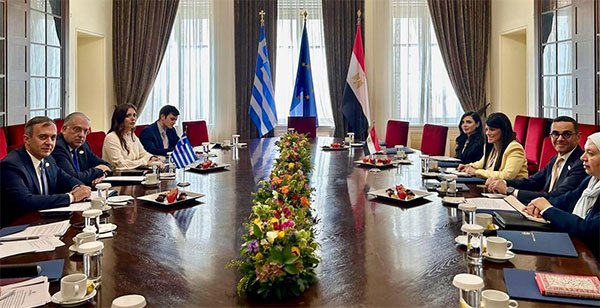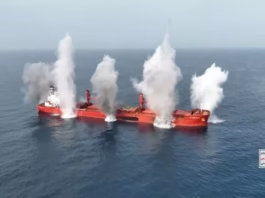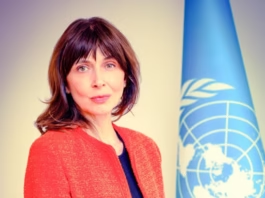Introduction to the Ceasefire Agreement
In recent weeks, the international community witnessed a significant development in the ongoing conflict in the Middle East, as a ceasefire agreement was brokered by the United States, bringing a temporary halt to hostilities in the Gaza Strip. This agreement marks a critical juncture in Middle Eastern politics, reflecting the urgent need for a sustainable resolution to the long-standing tensions in the region. The ceasefire not only emphasizes the desire for peace among various stakeholders but also highlights the global diplomatic efforts to mitigate violence and establish dialogue.
The backdrop of this agreement stems from a complex history rooted in decades of conflict, marked by cycles of violence and retaliatory actions. The recent escalations in the Gaza Strip had further destabilized an already volatile region, underscoring the dire need for intervention. Key players in the negotiations, primarily the United States, Israel, and Palestinian representatives, along with other regional actors, played pivotal roles in bridging differing perspectives and facilitating discussions aimed at achieving this temporary cessation of conflict.
This ceasefire, while intended to halt immediate violence, also serves as a crucial opportunity to address the underlying causes of the dispute. Efforts to establish a more enduring peace will require inclusive dialogue among various factions and an acknowledgment of the historical grievances that have perpetuated hostilities. The ceasefire agreement presents a moment of hope but also a challenging pathway towards a peaceful resolution, as persistent political and social issues remain unresolved. The ongoing geopolitical dynamics, especially in or related to the Middle East, necessitate a careful examination of the implications of such agreements on regional stability and the broader international landscape.
Greece’s Role and Influence in the Region
Greece occupies a unique position in the Middle East, owing to its historical connections and continuous interaction with countries throughout the region. This relationship has been shaped through centuries of cultural exchanges, trade, and diplomacy, fostering a sense of reciprocal understanding and connection. Recently, Greece has underscored its diplomatic presence by engaging actively with various nations, particularly in contexts characterized by tension and conflict.
Prime Minister Kyriakos Mitsotakis has articulated a clear vision for Greece’s role as a mediator and peace facilitator. His comments during a recent interview emphasize the importance of diplomatic dialogue and resolution to emerging disputes. Through strategic initiatives and partnerships, Greece seeks to bridge divides among conflicting parties, actively promoting stability in the region. Mitsotakis’s statements reflect Greece’s commitment to fostering enduring communication channels, which are essential for any diplomatic engagement.
Further enhancing Greece’s influence is its dedication to humanitarian efforts within the Middle East. By providing aid in times of crisis, Greece not only alleviates human suffering but also strengthens its relationships with affected countries. This humanitarian assistance aligns with Greece’s broader strategy of bolstering its soft power and underscores its role as a compassionate player in regional diplomacy. The nation aims to expand these initiatives, thereby enhancing its reputation as a reliable partner in conflict resolution and humanitarian support.
As Greece navigates its diplomatic role, its aspirations for becoming a principal peacebroker are evident. Through persistent dialogue and humanitarian outreach, Greece aspires to be a significant contributor to regional peace efforts. With its historical ties and contemporary diplomatic engagements, Greece stands poised to foster relationships that may lead to more sustainable conflict resolution in the Middle East.
Reactions to the Ceasefire from Political Leaders
The recent ceasefire agreement in the Middle East has elicited a significant response from various political leaders, particularly from Greece’s leadership. Prime Minister Kyriakos Mitsotakis expressed optimism about the ceasefire, describing it as a pivotal moment that could pave the way for a sustained peace in the region. He emphasized the importance of diplomatic engagement and the necessity for continued dialogue among all parties involved. Mitsotakis’ statement highlighted Greece’s diplomatic efforts and underscored its commitment to supporting measures conducive to stability and harmony in the Middle East.
Greek President Konstantinos Tasoulas also weighed in on the situation, articulating his support for the ceasefire as a crucial step towards resolving longstanding tensions. Tasoulas acknowledged the complexity of the conflict but underscored that such initiatives are vital for reducing violence and fostering mutual understanding among nations. His remarks reflected a belief that collaborative efforts and international dialogue are essential for nurturing a peaceful coexistence in the region. Both leaders attributed part of the success in achieving this ceasefire to the proactive involvement of global leaders, notably U.S. President Donald Trump. They lauded Trump’s contributions as instrumental in bringing about a compromise among conflicting parties.
The reactions from Mitsotakis and Tasoulas not only highlight Greece’s commitment to peace but also reinforce the nation’s strategic role as a mediator in the Middle East. Their statements serve as a reminder that effective diplomacy can lead to significant shifts in conflict dynamics. As Greece continues to navigate its diplomatic relations within the region, the emphasis on cooperation and dialogue is expected to remain central in its approach to influencing and fostering stability in the Middle East. This diplomatic engagement is aligned with Greece’s broader geopolitical objectives and its aspiration for a secure and peaceful regional landscape.
Future Prospects for Peace and Reconstruction in Gaza
The recent ceasefire in Gaza provides a crucial opportunity for peace and reconstruction in a region profoundly affected by prolonged conflict. Greek leaders have expressed a hopeful outlook regarding the reconstruction of Gaza, emphasizing the necessity of political stability and economic development as foundational elements for sustainable peace. The involvement of Greece in the reconstruction efforts signifies a broader commitment to fostering stability in the Middle East, a region marked by historical tensions and complex geopolitical dynamics.
Key to the future prospects for peace is the need for collaborative initiatives that engage not only local stakeholders but also international actors. Greece has positioned itself as a potential mediator, leveraging its diplomatic relationships to facilitate dialogue among conflicting parties. These diplomatic efforts emphasize the importance of building trust and reconciling diverse interests, which are essential for implementing effective peace initiatives. Greek authorities envision a multifaceted approach that integrates humanitarian aid, infrastructural development, and reconciliation processes, all aimed at restoring Gaza’s socio-economic fabric.
Moreover, the success of these reconstruction efforts will depend significantly on the support from the international community. Developing a coherent and sustained framework for assistance will be imperative to ensure that reconstruction is not merely a temporary solution but instead a catalyst for long-term stability. Enhanced cooperation among international organizations, donor countries, and non-governmental organizations will be vital in facilitating the delivery of aid and expertise necessary for rebuilding Gaza.
In conclusion, the prospects for peace and reconstruction in Gaza hinge on sustained diplomatic engagement, regional cooperation, and robust international support. Only through a concerted effort can the hopes for a lasting peace be transformed into tangible outcomes that ensure security and prosperity for the people of Gaza and the broader Middle Eastern region. Greece’s ongoing commitment to these efforts highlights the potential for meaningful change in a landscape often dominated by strife.




